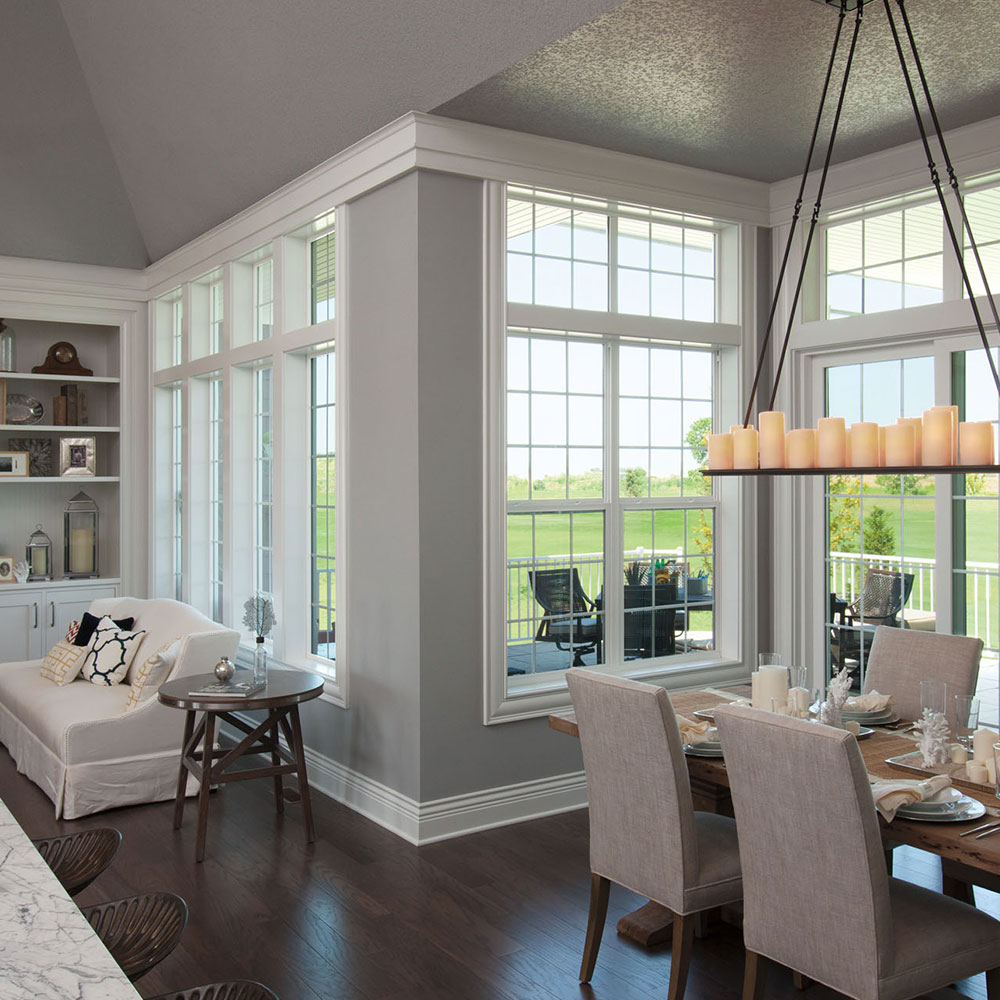Upgrade Your Home With Energy-Efficient Home Window Replacements
In the world of home improvement, the choice to update to energy-efficient window replacements can dramatically impact both the performance and visual appeals of a house (Houston window replacement). As homeowners seek methods to boost the efficiency and sustainability of their space, the choice of home windows plays a pivotal function in accomplishing these objectives. Past the surface degree of mere aesthetic appeals, energy-efficient home windows offer a wide range of advantages that go past simple curb charm. With a mindful option procedure that considers numerous variables, from glass kinds to installation techniques, beginning on this home upgrade trip can prove to be a transformative endeavor.
Benefits of Energy-Efficient Windows

The installment of energy-efficient home windows offers substantial financial savings on utility expenses while enhancing ecological sustainability. Energy-efficient windows are designed to decrease warmth loss and gain, minimizing the need for home heating and cooling systems to burn the midnight oil. By successfully shielding the home, these windows aid preserve a comfy indoor temperature level year-round, causing reduced energy intake and decreased energy costs. Additionally, energy-efficient home windows can assist manage wetness degrees within the home, decreasing the threat of mold and mold growth.
Past the financial benefits, energy-efficient home windows contribute to ecological sustainability by reducing carbon exhausts connected with energy manufacturing. By lowering energy usage, these home windows aid reduce the ecological influence of air conditioning, lights, and home heating domestic areas. This decrease in power intake plays a crucial role in combating climate modification and advertising a greener future for generations ahead. Overall, purchasing energy-efficient windows not only enhances the comfort and effectiveness of a home however likewise aligns with environmentally conscious practices.
Kinds Of Energy-Efficient Glass
Different sophisticated kinds of energy-efficient glass offer unique properties that accommodate different needs and choices in improving the sustainability and effectiveness of buildings. Low-emissivity (Low-E) glass is a popular option developed to minimize the quantity of ultraviolet and infrared light that can pass with the glass, consequently minimizing warm transfer. This type of glass assists maintain a regular indoor temperature, lowering the need for home heating or cooling systems, and eventually lowering power expenses. One more ingenious option is spectrally selective glass, which permits visible light to pass via while blocking certain sorts of infrared radiation. This helps in keeping a comfortable interior atmosphere while lessening warm gain. Triple-pane glass, including three layers of glass with shielding gas between them, provides enhanced thermal insulation, making it very energy-efficient. Furthermore, self-cleaning glass with a special layer that breaks down and loosens up dirt when subjected to sunlight can decrease upkeep needs and maintain windows looking tidy. Each kind of energy-efficient glass supplies distinct benefits, permitting house owners to pick the most appropriate alternative based on their specific requirements and goals.
Aspects to Consider When Selecting
When pondering energy-efficient window substitutes, it is critical to very carefully assess certain variables that line up with your sustainability objectives and wanted energy cost savings. The U-factor measures exactly how well the window protects, with reduced numbers suggesting far better insulation, while the SHGC indicates the home window's capacity to block warm from sunlight. By thoroughly reviewing these elements, you can pick energy-efficient windows that boost comfort, check my site decrease power costs, and benefit the setting.
Setup and Upkeep Tips

Routine upkeep is vital to protecting the efficiency of your energy-efficient home windows. Check the windows regularly for any signs of wear, damage, or sealer degeneration. Clean the frames, tracks, and glass frequently utilizing mild soap and water to get rid of dust and gunk that can affect performance. Examine the weather-stripping and seals for any type of spaces or tears and change them if needed to keep the windows' energy efficiency.
Furthermore, oil moving components such as locks and joints to make sure smooth procedure. By complying with these installment and maintenance pointers, you can enhance the power efficiency of your home and lengthen the lifespan of your energy-efficient windows.
Cost-Benefit Evaluation of Updating

Energy-efficient windows are designed to decrease heat transfer, minimizing the requirement for heating and cooling down systems to function overtime. This can cause considerable savings on power bills, particularly in areas with severe temperature levels. Furthermore, energy-efficient windows can boost the general value of your home, making it more eye-catching to prospective buyers if you decide to market in the future.
When determining the cost-benefit analysis, aspect in the possible financial savings on power bills, any readily available rewards or rebates, and the lifespan replacement slider windows of the home windows. While the preliminary cost might be higher, the lasting cost savings and advantages of energy-efficient home windows make them a clever investment for home owners aiming to improve their residential or commercial property's power efficiency and worth.

Conclusion
In final thought, upgrading to energy-efficient home window substitutes supplies numerous advantages such as lowered energy consumption, enhanced comfort, and expense financial savings. By choosing the ideal kind of energy-efficient glass and considering elements like framework material and setup, house owners can maximize the efficiency of their windows.
When contemplating energy-efficient window replacements, it is vital to very carefully examine certain aspects that straighten with your sustainability goals and desired energy cost savings. The U-factor steps exactly how well the window insulates, with reduced numbers showing better insulation, while the SHGC indicates the window's capacity to obstruct warm from sunlight. By carefully evaluating these factors, you can pick energy-efficient home windows that boost comfort, decrease energy prices, and benefit the environment.
While energy-efficient home windows may have a higher ahead of time price compared to traditional home entry door glass replacement windows, the long-lasting benefits often outweigh the preliminary investment.In conclusion, updating to energy-efficient home window replacements supplies many benefits such as lowered power consumption, increased convenience, and cost financial savings.